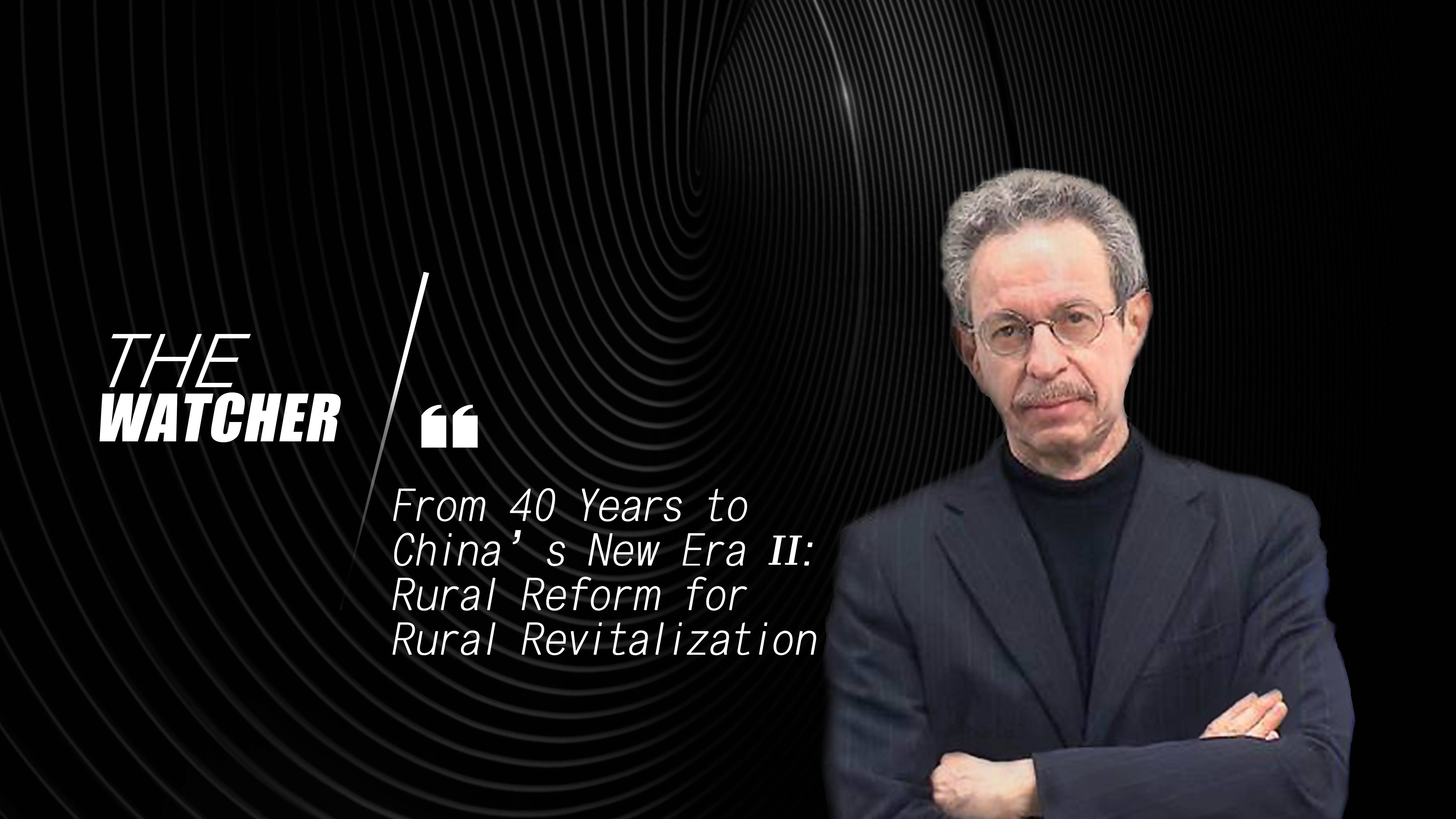
Opinions
22:01, 10-Nov-2018
From 40 Years to China's New Era II: Rural reform for rural revitalization
Updated
21:50, 13-Nov-2018
By Robert L. Kuhn
03:29

In this 40th year of China's reform and opening-up, an invigorated call for rural revitalization. What lessons were learned? What challenges lie ahead? Rural reform was the cradle of reform, so why has rural revitalization taken so long? Why is rural reform still a perennial topic at every Party Congress and at every annual meeting of the nation's highest legislative and consultative bodies?
The Communist Party of China (CPC) came to power supported by peasants and farmers. Yet, farmers could not own their own land – according to socialist ideology at the time, the country as a whole, not the people in the country, owned the land.
Rural reform continues to be unfinished business. A leading rural expert told me: “Historically, few countries, by the time they have reached the middle phase of industrialization, would still be plagued by agricultural issues.” Another said, cynically: “Everyone wants more in his own pockets; vested interests create rigidity.”
Financial benefits of rural lands became a key issue, especially as land values skyrocketed. This led to great wealth in urban areas, but ironically, farmers, the backbone of the Communist revolution, were left behind.
Everyone knows this has to be rectified. Currently, pilot programs provide rural land-use rights to be transferred via markets, enabling farmers to sub-contract, lease, exchange or swap their land-use rights or join shareholding entities with their farmland, all of which generates new income for the farmers – and without abandoning ultimate state ownership.
The reforms will provide farmers more income and help close the wealth gap with urban residents. It is not uncommon that farmers working for large companies are paid rent for their land as well as salaries for their labor. At the 19th CPC National Congress in late 2017, the Party outlined a national strategic plan for rural revitalization: By 2035, modernize the farm sector, boosting rural incomes and living standards.
This will require real reforms for farmers: both rural property rights and residency registration (hukou) rights. Can rural land reform bring about rural revitalization?
Questions remain, such as what happens to land rights if a farmer moves to a city and becomes a migrant worker? What happens when a farmer dies? And how can farmers' rights be better protected, especially from land expropriation by local governments?
Rural land issues remain real and troublesome. But rural revitalization is now a national strategy.
( If you want to contribute and have specific expertise, please contact us at opinions@cgtn.com.)

SITEMAP
Copyright © 2018 CGTN. Beijing ICP prepared NO.16065310-3
Copyright © 2018 CGTN. Beijing ICP prepared NO.16065310-3